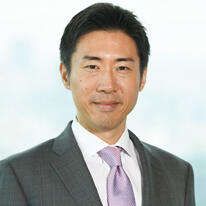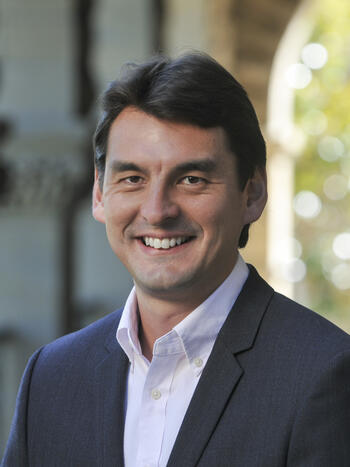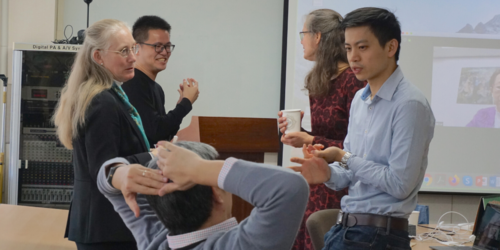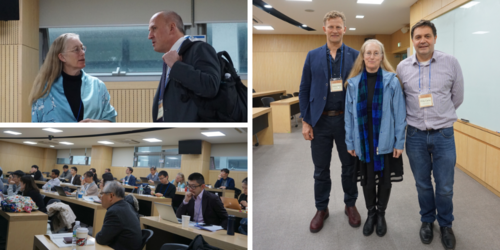A New U.S.-Japan Relationship Under President Biden
This event is being held virtually via Zoom. Please register for the webinar via the following link: https://bit.ly/3nNdqhW
With President Biden’s inauguration, a new era of US-Japan relations starts on January 20. Now that the cozy personal relationship between President Trump and Prime Minister Abe is in the rearview mirror, what can we expect in the Biden-Suga era? While the Biden administration is widely expected to drop Trump’s America First foreign policy and return to multilateralism and alliance-based diplomacy, its foreign policy priorities in the Asia-Pacific are still largely unknown. What role will the US-Japan alliance play in the new geo-political landscape in the region, and how would it handle the growing influence of China and build partnerships with other players in the region? This panel, featuring a leading expert on US politics and US-Japan relations, Fumiaki Kubo (University of Tokyo), and a rising star in the Liberal Democratic Party and an alum of the Ministry of Foreign Affairs, Rui Matsukawa (House of Councilors), examines these questions, moderated by the Director of APARC Japan Program, Kiyoteru Tsutsui.
SPEAKERS

Fumiaki Kubo (University of Tokyo)
Fumiaki Kubo has been the A. Barton Hepburn Professor of American Government and History at the Graduate Schools for Law and Politics, the University of Tokyo since 2003. He is affiliated with the Nakasone Peace Institute as the Executive Research Director, the Japan Institute for International Affairs as a Senior Adjunct Fellow, the 21st Century Public Policy Institute as the Director of the US Studies Project, as well as with the Tokyo Foundation as a Senior Research Scholar. He studied at Cornell University in 1984-1986, at the Johns Hopkins University in 1991-1993, and at Georgetown University and the University of Maryland in 1998-99. He was also an Invited Professor at SciencesPo in Paris in the spring of 2009, and a Japan Scholar at the Woodrow Wilson International Center for Scholars in 2014. Kubo received his B.A. in 1979 and Ph.D. in 1989 from the University of Tokyo. He is the author of many books which include: Modern American Politics (with Hitoshi Abe), Ideology and Foreign Policy After Iraq in the United States ( editor ), A Study on the Infrastructure of American Politics( editor ). In 1989, he received the Sakurada-Kai Gold Award for the Study of Politics and the Keio Gijuku Award. Kubo was the President of the Japanese Association for American Studies from 2016 to 2018.

Rui Matsukawa (House of Councilors)
Rui Matsukawa is a Member of the House of Councilors (Liberal Democratic Party), and her current responsibilities include Parliamentary Vice-Minister of Defense, Parliamentary Vice-Minister of Cabinet Office. She graduated from the University of Tokyo, Faculty of Law and earned an MS in Foreign Service from Georgetown. She joined the Ministry of Foreign Affairs in 1993, where she won the Southern Bluefin Tuna Case at the International Court of Justice, negotiated free trade agreements with Thailand, Philippines, and other countries, and worked on the negotiations for disarmament as a first Secretary of the Japan Delegation to the Conference on Disarmament in Geneva. She was in charge of analysis of China and the Korean Peninsula in the Intelligence and Analysis Service. She also promoted cooperation between Japan, China, and South Korea as Counsellor of the Embassy of Japan in Korea. In 2014, Ms. Matsukawa established WAW! (World Assembly for Women) to promote women’s empowerment and gender mainstreaming as the first Director of the Gender Mainstreaming Division in the Foreign Policy Bureau. In 2016, she left MOFA, and was elected to represent Osaka in the House of Councilors.
MODERATOR

Kiyoteru Tsutsui (Stanford University)
Kiyoteru Tsutsui is Henri H. and Tomoye Takahashi Professor and Senior Fellow in Japanese Studies at the Walter H. Shorenstein Asia-Pacific Research Center at Stanford University, where he is also Director of the Japan Program, a Senior Fellow of the Freeman Spogli Institute for International Studies, and a Professor of Sociology. He is the author of Rights Make Might: Global Human Rights and Minority Social Movements in Japan (Oxford University Press, 2018), co-editor of Corporate Responsibility in a Globalizing World (Oxford University Press, 2016) and co-editor of The Courteous Power: Japan and Southeast Asia in the Indo-Pacific Era (University of Michigan Press, forthcoming 2021).
Via Zoom Webinar.
Registration Link: https://bit.ly/3nNdqhW




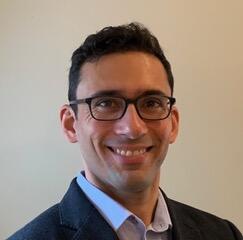
 Arthur Bienenstock is co-chair, with Peter Michelson, of the American Academy of Arts and Sciences’ Committee on International Scientific Partnerships. He has also been a member of the National Science Board, the governing body of the National Science Foundation, since 2012. From November 1997 to January 2001, he was Associate Director for Science of the White House Office of Science and Technology Policy. At Stanford, he is Special Assistant to the President for Federal Research Policy, Associate Director of the Wallenberg Research Link and a professor emeritus of Photon Science, having joined the faculty in 1967. He was Vice Provost and Dean of Research and Graduate Policy during the period September 2003 to November 2006, Director of the Stanford Synchrotron Radiation Lightsource from 1978 to 1977 and Vice Provost for Faculty Affairs from 1972 to 1977.
Arthur Bienenstock is co-chair, with Peter Michelson, of the American Academy of Arts and Sciences’ Committee on International Scientific Partnerships. He has also been a member of the National Science Board, the governing body of the National Science Foundation, since 2012. From November 1997 to January 2001, he was Associate Director for Science of the White House Office of Science and Technology Policy. At Stanford, he is Special Assistant to the President for Federal Research Policy, Associate Director of the Wallenberg Research Link and a professor emeritus of Photon Science, having joined the faculty in 1967. He was Vice Provost and Dean of Research and Graduate Policy during the period September 2003 to November 2006, Director of the Stanford Synchrotron Radiation Lightsource from 1978 to 1977 and Vice Provost for Faculty Affairs from 1972 to 1977. 

 Tim Stearns holds the Frank Lee and Carol Hall Professorship in the Department of Biology at Stanford University and is Senior Associate Vice Provost of Research. He also holds appointments in the Department of Genetics, is a member of the Stanford Cancer Institute and Bio-X, is a Faculty Fellow in Chem-H, and is an affiliated faculty member of the Center for International Security and Cooperation (CISAC). He is a member of JASON, a national organization that advises the government on matters of science, technology and national security. He has also been an advisor to the National Academies of Science and the President's Council of Advisors on Science and Technology (PCAST). Dr. Stearns received a B.S. from Cornell University, a Ph.D. from MIT, and did his postdoctoral fellowship at the University of California, San Francisco. His research concerns the mechanism and regulation of cell division, the organization of signaling pathways within cells, and cell biology of fungal pathogens. Stearns was named an HHMI Professor in 2002 for his work in science education, and has taught international workshops in South Africa, Chile, Ghana, and Tanzania. He is the chair of the NCSD Study Section at the NIH and has served on the editorial boards of several journals.
Tim Stearns holds the Frank Lee and Carol Hall Professorship in the Department of Biology at Stanford University and is Senior Associate Vice Provost of Research. He also holds appointments in the Department of Genetics, is a member of the Stanford Cancer Institute and Bio-X, is a Faculty Fellow in Chem-H, and is an affiliated faculty member of the Center for International Security and Cooperation (CISAC). He is a member of JASON, a national organization that advises the government on matters of science, technology and national security. He has also been an advisor to the National Academies of Science and the President's Council of Advisors on Science and Technology (PCAST). Dr. Stearns received a B.S. from Cornell University, a Ph.D. from MIT, and did his postdoctoral fellowship at the University of California, San Francisco. His research concerns the mechanism and regulation of cell division, the organization of signaling pathways within cells, and cell biology of fungal pathogens. Stearns was named an HHMI Professor in 2002 for his work in science education, and has taught international workshops in South Africa, Chile, Ghana, and Tanzania. He is the chair of the NCSD Study Section at the NIH and has served on the editorial boards of several journals.
 This event is part of the 2020 Winter/Spring Colloquia series,
This event is part of the 2020 Winter/Spring Colloquia series, 